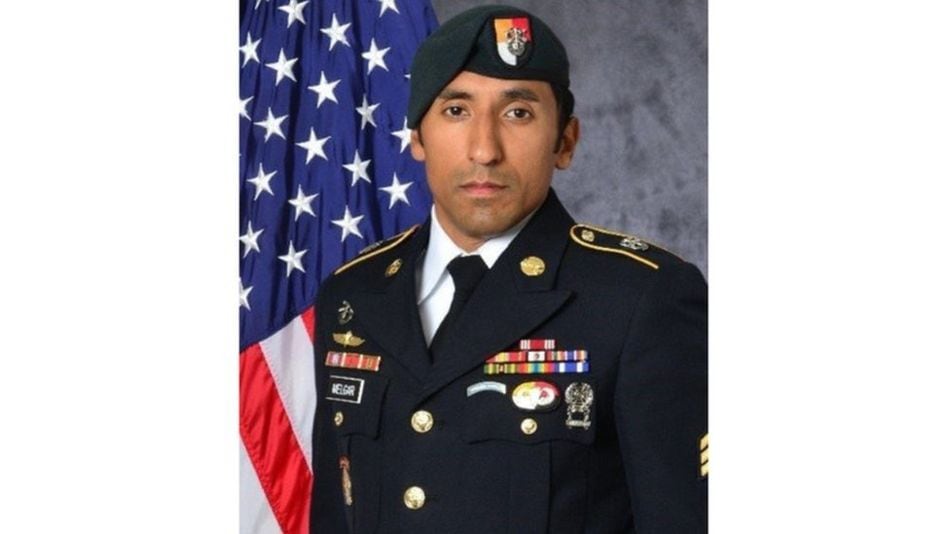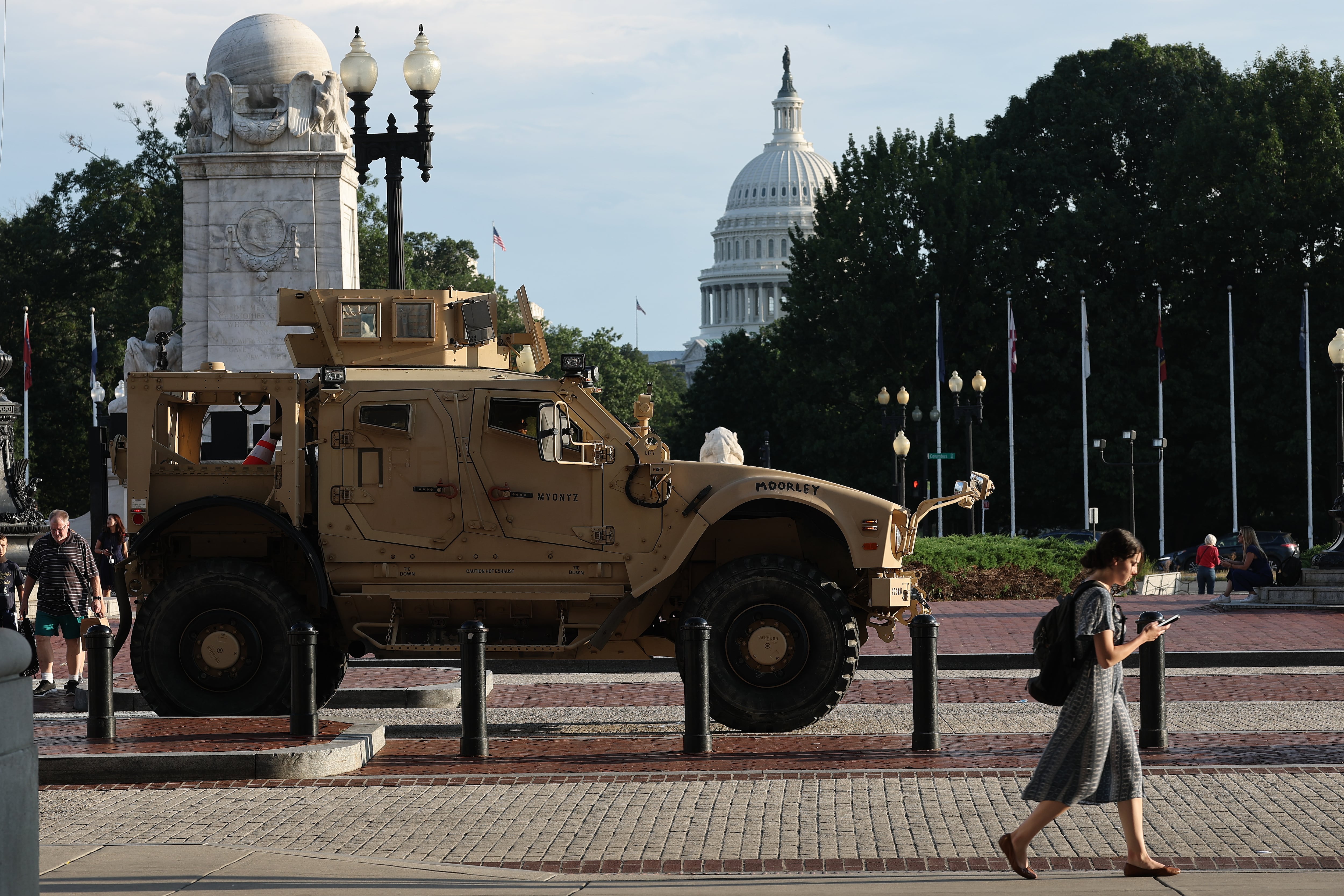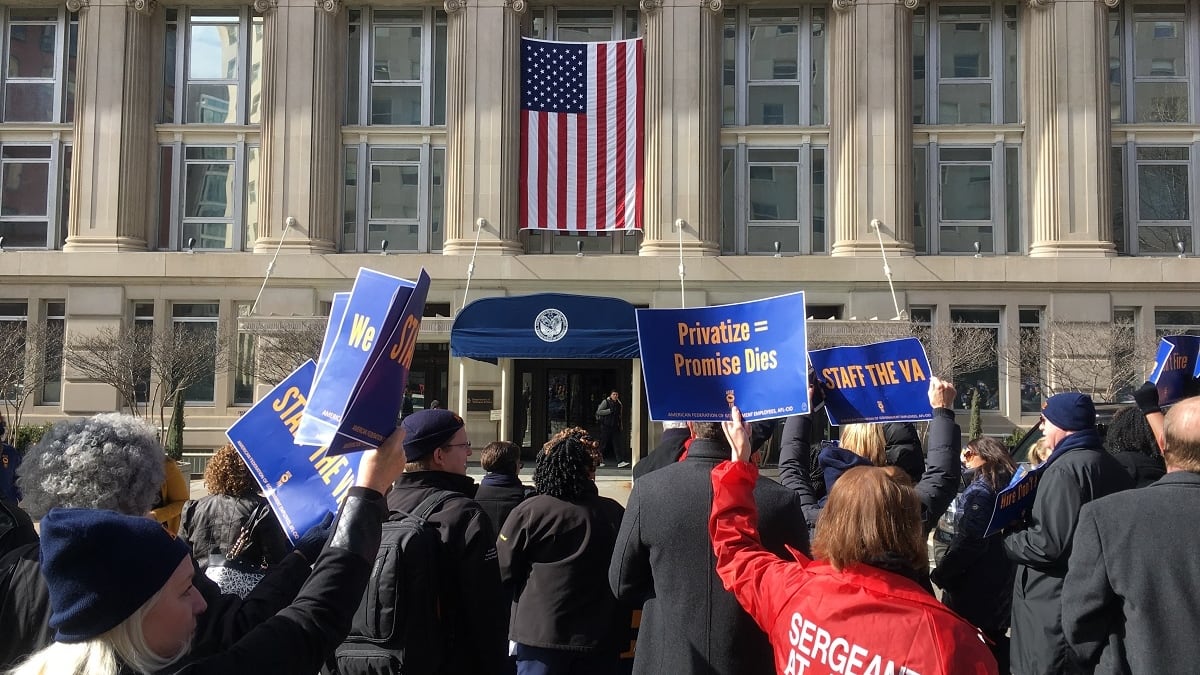NAVAL STATION NORFOLK, Va. — Navy SEAL Chief Petty Officer Adam C. Matthews pleaded guilty Thursday to charges related to the botched hazing incident in Africa that led to the strangling death of Army Green Beret Staff Sgt. Logan Melgar in June 2017.
“I cannot describe how sorry I am for the death of Staff Sgt. Melgar,” Matthews testified in a military courtroom in Virginia.
Matthews, a member of the elite SEAL Team 6, pleaded guilty to charges including conspiracy, unlawful entry, hazing, obstruction of justice and assault with battery.
As a maximum punishment, Matthews faces one year confinement, reduction in rank from E-7 to E-1, forfeiture of two-thirds pay each month for 12 months and a bad conduct discharge.
Previously, Matthews and his co-defendants all faced charges of felony murder, involuntary manslaughter, conspiracy, obstruction of justice, hazing and burglary.
But Matthews reached a plea agreement and agreed to testify against the three co-defendants in the case, a fellow Navy SEAL and two Marine Raiders. Those defendants have not yet had a trial date set, though one of the Raiders is in plea negotiations.
If convicted on the charges, the other defendants face the possibility of life in prison without parole.
Matthews said he had only been in Bamako, Mali for 24 hours on what was to be the first of three site visits for missions in the country. It was in those initial hours that he was told by fellow SEAL Petty Officer Tony DeDolph that Melgar had had behavior problems with the team of Green Berets, SEALs and Raiders, some of whom lived in shared housing together, according to his testimony Thursday.
During an all-night session of bar hopping with some drinking, Matthews testified, the SEALs, Raiders and an unnamed British special operations forces member hatched a plan to break into Melgar’s room as he slept, subdue him, duct tape him and video the affair to embarrass him.
Melgar was strangled death while he was in a chokehold during the hazing incident.
The “juvenile” elaborate hazing plan emerged as some members of the group drank at two bars that night, Matthews said.
“It was at that point we initiated the plan that ultimately led to the tragic and completely unintended death of Staff Sgt. Melgar,” Matthews testified.
Matthews testified that at around 5 a.m. DeDolph awakened Army Special Forces Sgt. 1st Class Jamie Morris to ask his permission to conduct the hazing. Allegedly, Matthews testified, Morris agreed to the hazing but didn’t want to participate and went back to sleep.
Morris has not been charged with any crime nor previously listed as a witness in public documents related to the case. His name and rank were not confirmed by officials during Thursday’s hearing.
Military judge Navy Capt. Michael Luken questioned Matthews on details of his guilty plea.
Matthews had previously said in court documents that the hazing incident traced back to a perceived snub when Melgar allegedly left the two Marines alone when he was to have taken them to a party at the French Embassy.
Specifically, the judge asked why the incident at the French Embassy would lead to the hazing that ultimately killed Melgar.
“What I’m trying to understand is how was this a deficiency?” Luken asked.
Matthews didn’t have firsthand details, but instead relied upon what the Marines had told DeDolph, who relayed the information to Matthews. DeDolph and an unnamed civilian interrogator working with the team were the only individuals that Matthews knew prior to arriving in Mali.
The chief added that Bamako was a “semi-permissive environment” in which it would not be common for service members to travel alone.
But, Matthews testified, DeDolph and others, including unnamed soldiers and another Marine, told them throughout the evening and early morning hours that there had been other incidents.
Melgar’s wife, Michelle Melgar, is attending the hearing and has held an Army Special Forces Green Beret throughout the proceedings. She has asked previously not to be contacted by media. Melgar’s mother was also in attendance. Matthew’s sister is attending. All three are scheduled to testify during the victim impact session of the sentencing, which was set for Thursday afternoon.
Melgar and the SEAL team were in Mali as part of a counter-terrorism mission related to the U.S. Embassy located there.
Even though Melgar died in June 2017 while deployed with the defendants to Bamako, the Pentagon did not release any information regarding his death and news outlets broke the story months later.
Weeks before his death, Melgar brought foreigners to housing where he, DeDolph and another SEAL who was not charged, lived, according to statements provided to investigators.
Melgar had engaged in “frat-like” behavior that had gotten both he and another soldier who also lived with Melgar uninvited from events at the U.S. Embassy, investigators said.
The soldier mentioned in the statement also told investigators that they had been barred from the SEAL’s operations center due to the behavior.
Though multiple sources told investigators that Melgar did not drink alcohol, the same soldier said that he, Melgar and everyone involved in Melgar’s death had done excessive drinking during the deployment.
Melgar had accused the SEALs of bringing prostitutes to the off-site embassy housing they shared, according to media reports.
The two SEALs and Raiders started planning the hazing session for Melgar while drinking at two local bars — Appaloosa and Byblos.
The planning followed an incident in which Melgar had apparently driven by the SEALs while on his way to a party at the French Embassy without stopping to pick them up. While at the party, the soldier said that Melgar drank two or three beers.
The alleged party snub was the final act for the foursome and they decided to tape up Melgar when they got back to the residence. The Raiders went to their separate residence to get duct tape and a sledgehammer.
“The sledgehammer was not required for us to gain entrance to SSGT Melgar’s room, but we used it because we thought that the noise associated with it would further surprise him,” Matthews wrote in his statement, according to the Washington Post.
DeDolph jumped on Melgar, locked him in a chokehold on the bed while Matthews grabbed Melgar’s legs and the Raiders began to duct tape the legs, the Post reported.
During all of this, they noticed that Melgar had stopped breathing.
They tried to revive him, Matthews said.
“He remained unresponsive, so we laid him back down and I began rescue breaths while the tape was cut off of him,” Matthews said, according to the Post.
“His chest rose and fell from my rescue breaths, and during one of the breaths, I saw red-tinted spittle come out of his mouth and hit me in the face,” Matthews said, according to the Post.
They used a defibrillator and cut open his throat in an emergency procedure to establish an airway.
Instead of calling an ambulance, they took him to a nearby clinic, where Melgar was pronounced dead.
The four defendants then decided that the two SEALs would tell investigators what happened but not mentioned the Raiders’ involvement, according to the Post.
The group cleaned up the area, throwing out all the alcohol they could find; a State Department security officer entered Melgar’s room with Gunnery Sgt. Mario Madera-Rodriguez as a witness, not realizing the Marine was involved in the homicide, the Post reported.
DeDolph, who also had blood on his hands, said they’d been wrestling and he was “pacing, in a state of shock, repeating himself and ‘not lucid,’” according to the Post.
A woman working with the U.S. government in Mali and who spoke with investigators told them she was with DeDolph after the incident and he told her he “kills people for a living, but not Americans.”
Court documents obtained by the Post showed text messages stating that Madera-Rodriguez told the same woman, who had been out with the four defendants drinking the night of the incident, that he thinks “about Logan’s family all the time” and that DeDolph was “out of his mind” after Melgar died.
Todd South has written about crime, courts, government and the military for multiple publications since 2004 and was named a 2014 Pulitzer finalist for a co-written project on witness intimidation. Todd is a Marine veteran of the Iraq War.





